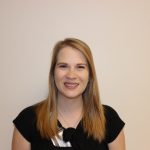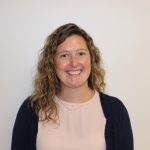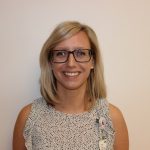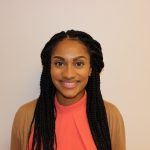LEND Program Highlights
2 New Fact Sheets from Disabled Parenting Project: Leveraging Social Policy to Make Change
“So You are Going to Have a Baby: A Guide for Women with Developmental Disabilities”
“Providing Prenatal Care for Women with Developmental Disabilities”
These fact sheets were created as part of our Cincinnati LEND Seminars in Evidence-Based Medicine project. A team of LEND trainees and faculty members conducted research on best practices while also consulting with stakeholders, including women with disabilities who have experienced pregnancy and prenatal care as well as medical providers.
LEND welcomes the new 2018-2019 class. Find out more about them here.
2018 Poster Session
Click here to see more details about the LEND project posters and abstracts
LEND Trainees’ Experience at DD Awareness Day, March 7, 2018
LEND Department of Developmental and Behavioral Pediatrics (DDBP) Trainee Spotlight
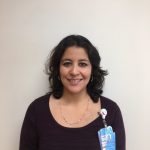 Carolina Cuba-Bustinza
Carolina Cuba-Bustinza
What impact has LEND had on you thus far/what have you learned?
The LEND program has opened up my mindset and several doors for opportunities! I am learning the importance of a multidisciplinary team approach to help children with disabilities. I am learning more about evidence-based medicine, family-centered approach and cultural diversity and how these will impact my whole medical approach. I am learning how to embrace the emotional bond between the medical team with the patient and their families. Meeting all kinds of professionals, parents, siblings, who have their main interest to help children with disabilities is giving hope that we all can change and improve the disabilities world.
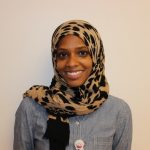 Hanein Edrees
Hanein Edrees
How will you use what you are learning now in LEND in your future/future plans?
LEND has had a positive impact in my work as a developmental pediatric fellow providing care to children with developmental disabilities. I have become a better and well-rounded clinician because I was exposed to multiple perspectives and worked in interdisciplinary teams throughout LEND. Having the family and sibling trainee perspective was also a crucial learning experience that I never got in my medical training. Learning about their personal stories, day-to-day struggles, and experiences with healthcare providers has helped shape how I provide collaborative and family centered care now and in the future.
LEND Physical Therapy Trainee Spotlight
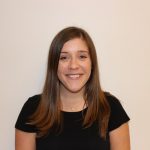 Courtney Goldsbury
Courtney Goldsbury
What impact has LEND had on you thus far/what have you learned?
LEND has helped me grow as a new professional in serving children with developmental disabilities. I have learned how to more successfully participate in an interdisciplinary team by learning from other professionals about their roles and expertise. Through LEND coursework I have gained a better understanding of the value of family-centered care when working with children with disabilities and their families, and this has impacted many areas of my clinical practice. I have learned how to more effectively partner with families and to better connect them with community resources. LEND training has been an instrumental experience that has made me a better clinician and will continue to impact my practice in my future career.
LEND Psychology Trainee Spotlight
Kaitlyn Eichinger
How will you use what you are learning now in LEND in your future/future plans?
The LEND training curriculum has highlighted for me the importance of an interdisciplinary team and how family members should be thought of as key members of the team, not separate from the team. I hope to continue to build on the leadership skills I have learned and work on interdisciplinary teams in my future work with individuals with neurodevelopmental disabilities.
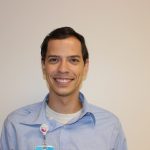
Robert Gibler
What impact has LEND had on you thus far/what have you learned?
Among many other things, LEND has provided me with the knowledge and tools I need to be a well-rounded clinician who is prepared to work in a fast-paced academic medical center. In addition to providing the foundational knowledge required to provide appropriate diagnoses and treatment recommendations for patients and their families, LEND also offers its trainees opportunities to utilize this information by working with real patients as part of an interdisciplinary team. Some of the most valuable pieces information I have learned this year have come from trainees outside of my own discipline. I think recognizing your unique role in a patient’s care is humbling and fosters a deep respect for the expertise of other providers whose backgrounds differ from your own.
Melissa Liddle
How will you use what you are learning now in LEND in your future/future plans?
I plan to use the information learned in LEND as I continue to pursue my doctoral degree and become a clinical psychologist. I have learned the most from the family, sibling, and self-advocates in our LEND program, for these are perspectives that can not be taught in school or through practicum experiences. Hearing their thoughts on what patient-centered care (or family-centered care) means is extremely helpful as I would like to work with children who have developmental disabilities as they experience health care appointments to help decrease stress and increase coping. As I am now more aware of how having a disability impacts the family experience and how resilient families and self-advocates are, I feel as though I can provide better care through refined assessment questions, compassionate yet impactful interactions, and ultimately improve my ability to advocate for children and families in difficult situations. This experience has reinvigorated my passion for helping siblings of children who have developmental disabilities, because of the close sibling relationship. Throughout the program, hearing the family, sibling, and self-advocate speak about their experiences has been the most impactful for me.
Teresa Smith
What impact has LEND had on you thus far/what have you learned?
LEND has impacted me in several ways, including changing my perspective about inclusion and accessibility. For example, the first thing I notice when I walk into a building is if there is easy access for individuals with physical disabilities or if a company hires individuals with developmental disabilities. These may seem like small changes, but they have really made me more of cognizant of the world around me, and how individuals with disabilities navigate this world.
LEND Social Work Trainee Spotlight
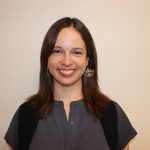 Elizabeth Burnett
Elizabeth Burnett
What impact has LEND had on you thus far/what have you learned?
As social work fellow at Cincinnati Children’s Hospital Medical Center (CCHMC), the Leadership Education in Neurodevelopmental Disabilities (LEND) program has been invaluable. As a part of my fellowship, I rotate clinics throughout CCHMC and also have the privilege to practice as a trainee in the Division of Developmental and Behavioral Pediatrics (DDBP) clinic. These experiences and the courses provided through the LEND program have built a foundation of knowledge that I will utilize in all aspects of my career. As a result of the LEND program, I have gained a better understanding about specific DD diagnoses, the symptoms that can occur with each condition, and barriers and challenges that individuals with developmental disabilities (DD) and their families experience on a daily basis. This has inspired me to become a better advocate and serve individuals and their families in a way more specific to their needs.
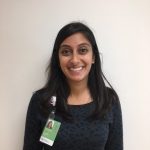 Rajvi Desai
Rajvi Desai
What impact has LEND had on you thus far/what have you learned?
LEND has been an amazing opportunity to work with an interdisciplinary team of motivated individuals. It is incredible to see how the entire team works together to provide family centered care for the patients and families. The LEND curriculum has provided numerous lectures of information and knowledge that are shaping us as leaders in the community, as well developing our clinical skills within the DD world. It has allowed me to learn about other specialties in ways that I would not have be able to otherwise. It is great to see how social work fits within this clinic and how we can provide the best level of care for patients. Excited to continue with the rest of LEND and maintain the connections and relationships I have made throughout the year.
LEND Occupational Therapy Trainee Spotlight
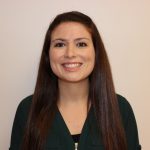 Felicia Foci
Felicia Foci
What impact has LEND had on you thus far/what have you learned?
As a new occupational therapy practitioner, LEND has directly applied to my life as a clinician. We consistently learn about evidence-based practices that I can apply to the children and families I see in outpatient therapy. In addition, the LEND curriculum facilitates a better understanding of interdisciplinary teams and understanding the role of various healthcare providers. As such, I am able to effectively collaborate care across many disciplines and refer patients appropriately. One of my favorite things about the LEND family is our willingness to support each other’s clinical practices and professional development. We often problem solve complex care situations and discuss ways to improve care. The opportunity to work on evidence-based research projects will continue to impact my career after the LEND year is over. I have enjoyed creating a training program for early childhood educators addressing the opioid epidemic in Ohio and creating educational materials for healthcare providers working with pregnant women with developmental disabilities.
LEND Genetic Counseling Trainee Spotlight
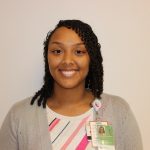 Michaela Idleburg
Michaela Idleburg
What impact has LEND had on you thus far/what have you learned?
LEND has increased my understanding of the roles and responsibilities of other clinicians, as well as respect for them, in the childcare field. Through explanations and experiences, I have been able to see how genetic counselors may work hand-I- hand with child-life specialists, OT, PT, nurse practitioners, and more. It is through collaboration through multiple specialties, sharing our viewpoints and listening to each other, that we can provide true family-centered care.
Rachel Sullivan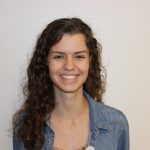
How will you use what you are learning now in LEND in your future/future plans?
I will use my LEND learning in lots of way in my future career, and I think the first step of that is choosing a job. While I am in the midst of interviewing and looking at offers, I am interviewing for positions where I will be able to work with people with disabilities, namely in general genetics and pediatrics. I am also looking at positions in university centers that have a UCEDD program because I know their policies will be informed by best practice.
LEND Audiology Trainee Spotlight
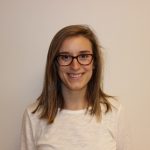 Kayla Whitaker
Kayla Whitaker
How will you use what you are learning now in LEND in your future/future plans?
As an aspiring pediatric audiologist, LEND has given me knowledge on how to successfully work with my families with children, with or without other developmental delays/disabilities. Throughout my time in LEND, I have learned to look at the whole picture, not just the child’s hearing loss. LEND has provided me with the skills to assist families in learning about their child’s hearing loss and other relevant concerns, aid them with advocating for their child’s needs, and build meaningful relationships with my patients and their families. I have learned how members of interdisciplinary teams can work together to give patients the best outcomes, and I will continue to utilize my team members expertise to help my patients.
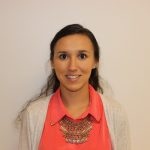 Bethany Wysocki
Bethany Wysocki
What impact has LEND had on you thus far/what have you learned?
LEND has provided a perspective on healthcare and family centered practices that I would not have been able to get otherwise. The program has taken my clinical education beyond the classroom setting and allowed me to see how I can best serve each patient and their families, individually and uniquely. The people I have worked with continually help me to identify my strengths and develop areas of growth so I can best serve my patient population.
LEND Sibling Trainee Spotlight
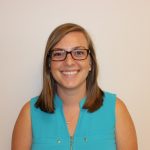 Allison Loechtenfeldt
Allison Loechtenfeldt
What impact has LEND had on you thus far/what have you learned?
As the sibling of a brother with complex medical issues and severe developmental delays, all I knew about medicine and the healthcare system was learned through experience prior to LEND. LEND has provided me a formal opportunity to learn about different disabilites which has allowed me to broaded my view of the world and become educated about different systems I have never had to experience. Learning about different professions, how they are related, and why interdisciplinary teams are so important has not only helped me as a sister, but also a professional in pediatric clincial research to be a better team player and advocate.
LEND Speech Language Pathology Trainee Spotlight
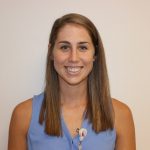 Molly Gamble
Molly Gamble
What impact has LEND had on you thus far/what have you learned?
LEND has provided me with such a diverse learning experience that I otherwise would not have gotten from my graduate program. The topics we discuss every week are unique, dynamic, and relevant to my future career as an SLP, even when they may initially seem unrelated. I have learned so much valuable information, and I truly believe I will be a better clinician because of my LEND experience.
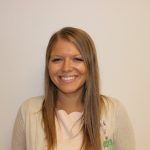 Sarah Kasper
Sarah Kasper
What impact has LEND had on you thus far/what have you learned?
LEND has impacted me immensely thus far by preparing me as a future leader in the field of developmental disabilities as a speech-language pathologist. By being immersed in my LEND cohort with such diverse disciplines and perspectives, I have learned the value that each professional and family member contributes in order to provide the most well-rounded patient care. I now feel more comfortable serving a diverse population of patients as I’ve become more knowledgeable and aware of topics such as health literacy and the social determinants of health. Lastly, I have learned how to become an active leader in my profession, using the qualities I’ve gained through LEND to teach other professionals and positively impact as many patients as possible.
Tiffany Moody
What impact has LEND had on you thus far/what have you learned?
Lend has made a huge impact on my life thus far in regards to my career and personal life. I have learned so much about myself including my weaknesses and have been provided with the tools and guidance to strengthen those areas. I have also learned a great deal about developmental disabilities and how to provide more patient centered care based on personal accounts provided by different families. This experience has been very eye opening and has further confirmed my passion for working with this population and with that came the knowledge and awareness of how important advocacy is for my clients/ patients. This has pushed me to involve myself in programs that emphasize advocacy within my profession and within these opportunities I will learn what I can specifically do as a speech-language pathologist to fulfill the need.
LEND Family Trainee Spotlight
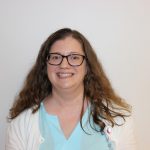 Jane Bodie
Jane Bodie
What impact has LEND had on you thus far/what have you learned?
LEND has had a huge impact on my knowledge and awareness of the challenges faced by those who have neurodevelopmental and related disabilities. I was fascinated to learn about the impact of Adverse Childhood Experiences (ACE), as well as the Social Determinants of Early Childhood Development. I have had the opportunity to learn more about specific neurodevelopmental disabilities such as Rett Syndrome and Spina bifida. Through my research project I have been exposed to the challenges faced by those seeking a post-secondary education. Finally, my participation in LEND has connected me with a group of amazing individuals who are doing great work in the field of neurodevelopmental disabilities.
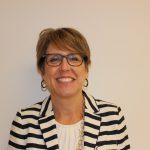 Diane Burns
Diane Burns
What impact has LEND had on you thus far/what have you learned?
In the last eighteen years, I have served the Spina Bifida Coalition of Cincinnati (SBCC) in many different capacities. However, in the various roles I have assumed, I have always concentrated my energy on connecting individuals to other families and resources, educating families, schools and caregivers, about spina bifida, and providing financial and emotional support for coping with this complex but manageable condition. Participating in the Leadership Education in Neurodevelopmental Disabilities (LEND) training has expanded my thinking beyond individual/family support and care. Learning about disability policy and current initiatives, while reflecting on my personal challenges in leadership and communication style, will help me become a more persuasive and effective advocate and create positive change in the community and across systems. The LEND training program has increased my knowledge of evidence based research, adverse childhood experiences and their impact on health across the lifespan, cultural competency, and broadened my understanding of the many neurodevelopmental disabilities seen at Cincinnati Children’s Hospital Medical Center Division of Developmental and Behavioral Disabilities with an overview of best practice in interdisciplinary treatment. Currently serving as the Program Manager for SBCC, I am always evaluating opportunities to empower people living with spina bifida and their families. Acquiring awareness and pragmatic skills in LEND competencies helps me empower not only people with spina bifida, but also collaborate with other support organizations, identify the reasons behind challenges they all face at home and in the community, and develop new programming to address their collective needs.
LEND Child Life Trainee Spotlight
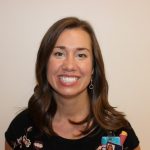 Emily Jones
Emily Jones
How will you use what you are learning now in LEND in your future/future plans?
LEND has tremendously shaped my career path and goals. First, I feel that I am a better clinician because of the things I have learned through LEND, particularly best practices in the developmental disabilities field related to accessible language, evidence-based supports, and core disability knowledge. In addition, participating in LEND has strengthened my desire to further my education in order to learn more and make a great impact in the disabilities field. I plan to apply for graduate programs in the fall in order to broaden my knowledge and reach related to developmental disabilities.

